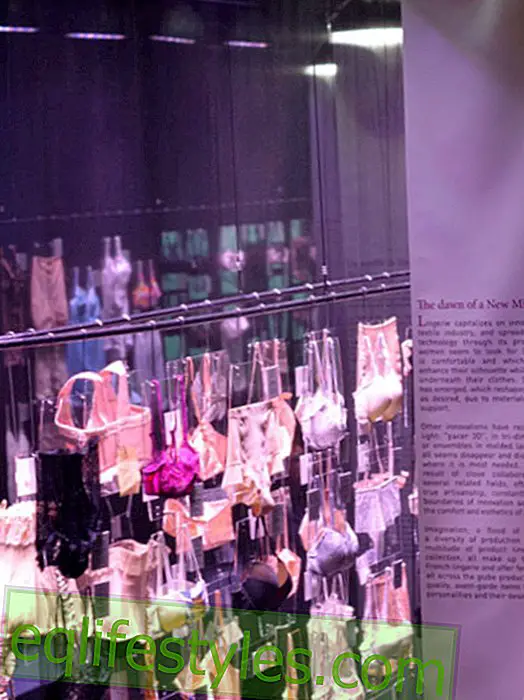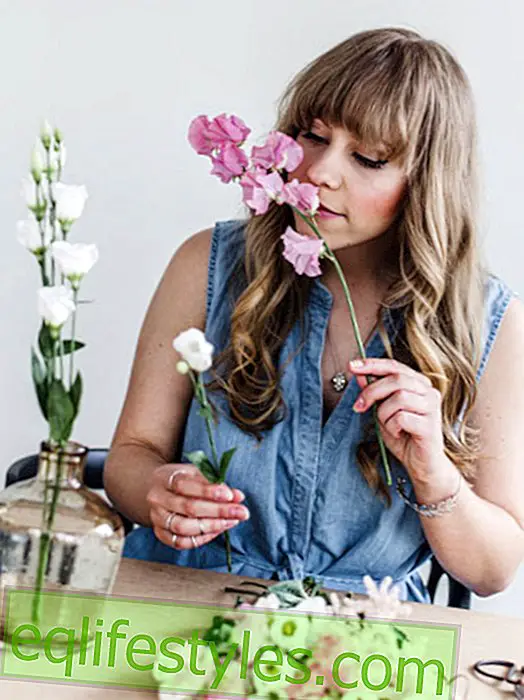
Photo: facebook.com/sheryl
- Moving farewell letter: Sheryl Sandberg promises her dead husband to honor his memory
- "Do not let me die while I'm still alive."
- Sheryl's farewell letter
Moving farewell letter: Sheryl Sandberg promises her dead husband to honor his memory
A month ago, Dave Goldberg, the husband of Facebook manager Sheryl Sandberg, died. Now she says goodbye to her beloved husband with a moving farewell letter.
When a woman loses her beloved husband, grief is endless. If the beloved person has to go far too early, that is hard to bear for the one who has to stay. Unfortunately, that's exactly what happened to Sheryl Sandberg. Dave Goldberg, the man of the Facebook manager and father of her two children, died a month ago at the age of 47 in a tragic sports accident.
Now she says goodbye to him with a loving farewell letter - and publishes it on Facebook, hoping that other people who mourn the loss of a beloved father, mother, friend, or child can learn something from their pains helps to cope better with the loss.
"Do not let me die while I'm still alive."
Today is the end of sheloshim for my beloved husband-the first thirty days. Judaism calls for a period of intense ...
Posted by Sheryl Sandberg on Wednesday, 3 June 2015
Sheryl's farewell letter
"A friend of my childhood, who is a rabbi today, recently told me the most powerful one-line prayer he ever read, " Do not let me die while I'm still alive. " I never understood that prayer before I lost Dave. Now I understand it.
I think that when such a tragedy happens in your life, you have to make a decision. You can surrender to the lack, the emptiness that fills your heart, constricts your lungs and gives you the ability to think. Or you try to find meaning in it. For the past 30 days, I've mourned my husband and experienced many moments when I've lost myself in the void. And I already know that there will be many moments in the future that will absorb this emptiness.
But if I can, I would like to choose life and meaning.
That's why I am writing this letter today: To mark the end of the Jewish mourning period and to return some of the good that others have given me. Because even though this pain is deeply personal, it helped me to get through that so many people out there have shared their personal experiences with me. Some of those people who opened their hearts to me were my closest friends. Others were completely foreigners. That's why I share what I've learned in the hope that it can help someone else. In the hope that this tragedy can make sense.
I lived through 30 years in these 30 days. I'm 30 years sadder. I feel like I'm 30 years wiser.
I have gained a deeper understanding of what it means to be a mother - through the depth of suffering that I feel when I hear my children cry and through my mother's connection to my pain. She tried to fill the empty space in my bed by holding me up every night until I cried myself to sleep. She has struggled to hold back her own tears to make room for mine. She explained to me that my torment is also that of my children. I understood that she was right when I saw the pain in her eyes.
I realized that I never really knew what to say to other people who needed comforting words. I think now that I did a lot wrong before. I always assured people that everything would be fine, because I thought that hope is the most comforting thing I can offer. One of my friends with end-stage cancer told me that was the worst thing anyone could say to him, "It's gonna be alright". In his head then always cried a voice: How do you know that everything is going to be okay? Do you understand that I could die?
Last month, I understood what he wanted to tell me. Real compassion is sometimes not to insist that it will be fine, but to acknowledge that it will not be all right again.
When others say to me, "You and your children will eventually be happy again, " I believe in it, but I know that I can never feel pure happiness again. Those who told me, "You will reach a new normal state, but it will never be as good as it was before, " have given me more comfort because they know how it really is.
Even a simple "how are you?" - almost always asked with the best intentions - should be better replaced by a "how are you today?" If someone asks me how I am, then I have to get rid of it myself stop shouting: "My husband died a month ago! What do you think I'm doing? "When I hear" How are you today? "I know that person understands that the best thing that can happen to me right now is just one thing, everyone to survive each day.
I also learned some practical things that are really important. We know today that Dave died instantly, but we did not know that while we were in the ambulance. This ride was unbearably slow. I still hate any car that has not made way, any rider who felt it was more important to reach his destination a few minutes earlier than to clear the way for us. I noticed that in other countries and cities as well. Let's all make room when an ambulance comes! The life of one's parents, partner, or child could depend on it.
I've learned how fleeting everything can feel, how fleeting maybe everything is. No matter what carpet you're on, it can be pulled away under your feet without any warning. For the past 30 days, I have heard of many women who lost their husband and lost their soil under their feet. Many lack supportive networks and have to cope with this emotional crisis and financial insecurity on their own. It seems so wrong to leave these women alone at a moment when help is most needed.
I also learned to ask for help - and how much help I need. Until now, I was the older sister, the managing director, the maker and the planner. But I did not plan this, and when it happened I was not able to do much of anything. Those closest to me have taken over. They told me where to sit and reminded me to eat. They still do so much to support me and my children.
I have learned that you can learn resilience. Adam M. Grant has taught me that there are three key things to do and that I can work on all three. Personalization - understand that it was not my fault. He taught me to banish the word "excuse me, " telling me over and over again that it was not my fault. Persevere - always remember that I will feel that way forever. That it will get better. Foreclosure - this does not have to affect every aspect of my life; the ability to isolate certain things is healthy. For me, the return to work was salvation, a chance to be useful and connected again. But I have understood very quickly that the connections have changed there. Many of my work colleagues were scared when I showed up. I know why - they wanted to help, but did not know how. Should I say something? Should I say nothing? If I say something - what the hell am I supposed to say? I learned that I could only reconnect between us by letting her touch me. That means I had to be more open and vulnerable than I ever wanted to be. I have told those I work most closely with, that they can ask me all their honest questions and that I would answer them. I also told them that it would be ok if they wanted to talk about their own feelings. A colleague admitted that she had passed my house again and again, unsure if she should ring the bell. Another said he had paralyzed her in my presence, unsure of what to say. Talking about it openly dispelled their fears and worries about doing or saying something wrong. In one of my favorite cartoons an elephant stands in a room and says into the phone, "Here's the elephant." After addressing this invisible elephant, we were able to scare him out of the room.
[...] I have learned to be thankful. Gratitude for the things I once took for granted - like life. With my broken heart, I look at my children every day and am grateful that they are alive. I enjoy every smile, every hug. When a joy told me how he hates birthdays and that he does not want to celebrate his, I looked at him with tears in my eyes and said, "Celebrate your birthday, damn it. You are fortunate enough to experience it. "My next birthday will be terribly depressing, but I'm determined to celebrate it more in my heart than ever.
I am grateful to the many people who have shown me their compassion. A colleague told me that his wife, whom I never met, decided to go back to school and finish her degree - something she had previously forced out for years. Yes! If circumstances permit, I'm more then ever ready to get involved. And so many men - many I know and many I'll never meet - honor Dave's life by spending more time with their families now.
I can not express my gratitude to my relatives and friends who have done so much for me, who have assured me that they will continue to be there for us. In the dreadful moments when I am overwhelmed by the void in which the months and years spread endlessly and desolately before me, it is their faces that help me out of fear and isolation. My gratitude for her knows no bounds.
I talked to one of these friends about father-child actions that Dave can not do anymore. We worked on a plan to fill the gap left by Dave. I cried, "But I do not want a plan B! I want Dave! "He took me in his arms and said, " Plan A is not possible. So let's get the bad out of Plan B. "
Dave, to honor your memory and raise your children as they deserve, I promise to do everything to make Plan B better. Even though the Jewish bereavement period is over now, I'm still grieving for Plan A. I'll always mourn Plan A. "The grief does not end ... and the love does not end." I love you, Dave. "


Photos: Facebook / GettyImages









